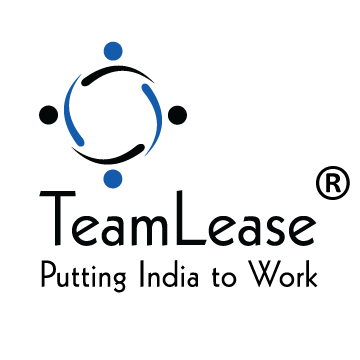Evolution of Human Resource Management in India

The evolution of human resource management in India is a compelling story of how businesses have transformed their approach to people. What started as a department focused on records, payroll, and compliance has grown into a strategic engine for talent, culture, and business continuity.
Today, the HR department is responsible not only for hiring and paperwork but also for creating effective work environments, enhancing employee retention, and guiding workforce decisions with data and insight.
Early Days: Personnel and Payroll
Initially, human resource management HRM was mainly about keeping track of employee data, handling grievances, and managing wages. The payroll manager played a key role in disbursing salaries accurately and on time.
During this time, the HR team ensured adherence to labour laws and helped organisations ensure compliance with statutory norms. Benefits were limited, and there was little focus on engagement or career growth.
The concept of structured employee benefits, career paths, and performance-based rewards had not yet been adopted in mainstream Indian business practices.
The Strategic Shift
With the liberalisation of the Indian economy in the 1990s, companies, especially MNCs, started demanding more from their HR functions. This prompted Indian businesses to reassess their HR strategies.
The HR function evolved to include talent acquisition, training and development, and organisational design. Focus shifted from filling vacancies to building future-ready talent pipelines. Recruitment processes became structured with defined interview panels, assessment methods, and onboarding strategies.
HR managers began aligning workforce strategies with business goals and became partners in driving culture, retention, and productivity.
According to a SHRM India survey, 74% of HR managers now view themselves as strategic contributors to business success, rather than just operational enablers. This era also saw significant improvements in compensation and benefits, which helped attract and retain skilled talent in competitive industries.
Technology and the Digital HR Leap
The 2010s introduced automation and cloud-based tools that revolutionised how HR departments functioned. Processes such as payroll, attendance, recruitment, and performance reviews have moved online.
Payroll schedules, once handled manually, have become automated, helping to reduce errors, ensure timely payouts, and improve compliance with tax and labour laws. Today’s payroll managers can manage multi-location teams, contractor payments, and benefits calculations with just a few clicks.
Hiring improved, too. Applicant tracking systems, virtual interviews, and AI-powered resume screening tools helped organisations reduce time-to-hire and enhance candidate experience.
Performance management systems also saw a shift. The annual appraisal gave way to continuous feedback mechanisms, OKRs, and real-time productivity dashboards—all of which contributed to better employee retention and alignment.
A NASSCOM report reveals that 68% of large companies in India now utilize AI in at least one aspect of their HR function, ranging from workforce planning to talent development.
Rise of HR Outsourcing
As HR became more complex and technology-driven, many organisations, especially those experiencing rapid growth, began outsourcing critical HR functions. Today, companies regularly outsource payroll processing, compliance management, contract staffing, and even full-scale recruitment.
This shift allows businesses to reduce operational load, access expert support, and stay compliant with ever-evolving laws. For the internal HR team, outsourcing non-core functions means more time to focus on employee engagement, leadership development, and strategic planning.
Outsourcing also helps standardise operations across regions, whether it’s maintaining a unified payroll schedule, managing employee benefits, or coordinating hiring across multiple plants or offices.
Future of HRM in India
The future of human resource management HRM is focused on personalisation, agility, and purpose. As Gen Z enters the workforce, expectations around flexibility, technology, and values are higher than ever. An Aon India study shows that 82% of employers revamped their benefits offerings in the past two years to keep pace with employee expectations.
Key areas for HR transformation include:
- Building more tailored compensation and benefits programs
- Redesigning work environments for hybrid and global teams
- Helping leaders and teams ensure compliance with new labour codes
- Using real-time data to drive employee retention and satisfaction
In this landscape, the HR function must remain adaptive, leveraging tech, empathy, and analytics to support business growth.
Conclusion: HR as a Catalyst for Growth
The evolution of human resource management in India reflects the growing importance of people in business performance. From being compliance-driven to becoming strategy-led, the HR department now shapes everything from hiring and retention to culture and business continuity.
With automation, expert support, and a stronger focus on people, Indian companies are now better equipped to handle workforce challenges.
Looking to modernise your HR operations?
Contact us to discover how we can help you elevate your workforce with end-to-end, tech-enabled HR solutions.
Latest Blogs
Permanent vs. Contract Staffing: What’s Right for Your Business?
Workforce strategy matters now more than ever in India’s evolving employment landscape. As businesses strive for growth, efficiency, and regulatory compliance, choosing between permanent staffing...
Read MoreApprenticeship Programs vs Internship: Understanding the Difference
As India sharpens its focus on employability, workforce formalization, and industry-aligned skilling, the conversation around apprenticeship programs vs. internship has become increasingly important. For employers,...
Read MoreApprenticeship India: A Guide to NAPS, NATS & Compliance
As India strengthens its workforce strategy, apprenticeship initiatives in India are gaining renewed relevance for employers across sectors. With skill gaps widening and compliance requirements...
Read MoreHow Apprenticeships in India Help Build Job-Ready Talent?
In a fast-evolving job market, businesses across India face a common challenge: finding candidates who are not just qualified on paper but ready to perform...
Read MoreStrategic Workforce Planning in India: Why Smart Talent Strategy is Important?
For years, strategic workforce planning in India was treated as a back-office exercise—something to be revisited when hiring pressure built up or attrition spiked. That...
Read More





